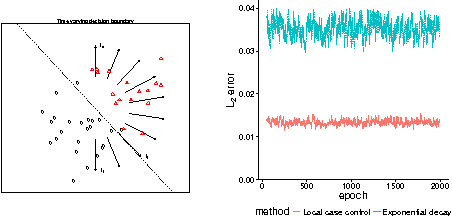Adaptive Threshold Sampling and Estimation
Paper and Code
Aug 16, 2017
Sampling is a fundamental problem in both computer science and statistics. A number of issues arise when designing a method based on sampling. These include statistical considerations such as constructing a good sampling design and ensuring there are good, tractable estimators for the quantities of interest as well as computational considerations such as designing fast algorithms for streaming data and ensuring the sample fits within memory constraints. Unfortunately, existing sampling methods are only able to address all of these issues in limited scenarios. We develop a framework that can be used to address these issues in a broad range of scenarios. In particular, it addresses the problem of drawing and using samples under some memory budget constraint. This problem can be challenging since the memory budget forces samples to be drawn non-independently and consequently, makes computation of resulting estimators difficult. At the core of the framework is the notion of a data adaptive thresholding scheme where the threshold effectively allows one to treat the non-independent sample as if it were drawn independently. We provide sufficient conditions for a thresholding scheme to allow this and provide ways to build and compose such schemes. Furthermore, we provide fast algorithms to efficiently sample under these thresholding schemes.
 Add to Chrome
Add to Chrome Add to Firefox
Add to Firefox Add to Edge
Add to Edge